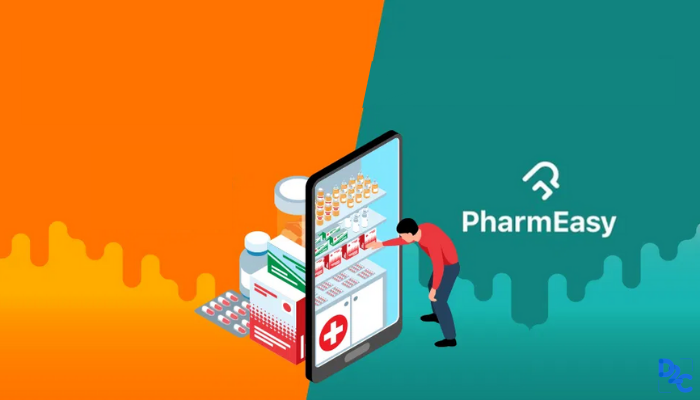Health apps have become essential tools for managing our wellness and accessing medical services. Particularly in India, where the healthcare landscape is vast and diverse, “Health App In India” plays a crucial role in bridging gaps and enhancing accessibility. Let’s dive into the world of health apps in India, focusing on the unique benefits, challenges, and future prospects they offer.

The Rise of Health Apps in India
Evolution and Growth
Over the past decade, the digital transformation in India has been nothing short of phenomenal. Health apps in India have evolved from simple fitness trackers to comprehensive platforms offering a wide range of medical services. This growth is fueled by increasing smartphone penetration, better internet connectivity, and a growing awareness of digital health solutions.
Key Factors Driving Adoption
Several factors contribute to the widespread adoption of health apps in India. These include:
- Rising healthcare costs
- Increased focus on preventive care
- Government initiatives promoting digital health
- The convenience of accessing healthcare services remotely
Types of Health Apps
Fitness and Wellness Apps
These Medicine Health Apps help users track their physical activity, diet, and overall wellness. Popular examples include MyFitnessPal and Fittr.
Telemedicine Apps
Telemedicine apps like Practo and DocsApp allow users to consult with doctors via video calls, chat, or phone calls, making healthcare more accessible, especially in remote areas.
Medicine Delivery Apps
Apps such as 1mg and Medlife provide users with the convenience of ordering medicines online and getting them delivered to their doorstep.
Health Monitoring Apps
These apps, like HealthifyMe and Weallthy Care, are prominent examples of a Health App in India that help users monitor chronic conditions like diabetes and hypertension by tracking vital parameters and offering personalized advice.
Features of a Comprehensive Health App
User-Friendly Interface
A successful health app must have an intuitive and easy-to-navigate interface to cater to users of all age groups and tech-savviness levels.
Secure Data Handling
Given the sensitivity of health data, especially when using a Health App in India, robust security measures, including encryption and secure login, are essential.
Integration with Wearables
Integration with wearable devices like smartwatches and fitness bands can enhance the functionality of Medicine Health Apps by providing real-time health data.
Multi-Language Support
To cater to India’s diverse population, health apps should offer multi-language support, making them accessible to users who speak different languages.
Benefits of Using Health Apps
Accessibility and Convenience
Health apps, including those focused on Medicine Health App solutions, make healthcare services accessible from the comfort of your home, saving time and effort.
Cost-Effectiveness
By offering competitive pricing and discounts, health apps make healthcare more affordable.
Personalized Healthcare
Many health apps use AI and machine learning to provide personalized health advice and treatment plans.
Improved Health Outcomes
With regular monitoring and timely interventions, health apps can significantly improve health outcomes for users.
Challenges Faced by Health Apps in India
Digital Literacy
A significant challenge is the varying levels of digital literacy among users, which can hinder the adoption of health apps.
Data Privacy Concerns
Ensuring the privacy and security of sensitive health data within a Medicine Health App is crucial to building user trust.
Regulatory Hurdles
Navigating the complex regulatory landscape in India can be challenging for health app developers.
Technological Barriers
Issues like poor internet connectivity in rural areas can limit the effectiveness of health apps.
Future of Health Apps in India
Innovations and Trends
The future looks promising with innovations like AI-driven diagnostics, telehealth advancements, and integration with IoT devices.
Potential Impact on Healthcare System
Health apps have the potential to revolutionize the Indian healthcare system by improving access, reducing costs, and enhancing the quality of care. A Health App in India could significantly contribute to these improvements by providing users with convenient and personalized healthcare solutions, bridging gaps in accessibility, and supporting better management of health conditions.
Developing a Successful Health App
Understanding User Needs
Thorough market research to understand user needs and pain points is crucial for developing a successful health app.
Ensuring Compliance with Regulations
Compliance with local regulations and standards is essential to avoid legal issues and ensure user safety.
Leveraging AI and Machine Learning
Incorporating AI and machine learning can enhance the app’s capabilities in providing personalized healthcare and predictive analytics.
Building a Reliable Support System
A robust support system is vital for addressing user queries and issues promptly, enhancing the overall user experience.
Role of Government and Policies
Digital Health Initiatives
The Indian government has launched several initiatives like Ayushman Bharat Digital Mission to promote digital health solutions.
Supportive Regulations
Supportive regulations and policies are essential to encourage innovation and adoption of health apps.
Public-Private Partnerships
Collaborations between the government and private sector can drive the growth and development of health apps.
How to Choose the Right Health App
Identifying Your Needs
Understand your specific health needs and look for apps that cater to those requirements.
Checking Reviews and Ratings
User reviews and ratings can provide insights into the app’s reliability and effectiveness.
Ensuring Security and Privacy
Choose apps that prioritize data security and privacy to protect your sensitive health information.
Impact of COVID-19 on Health Apps
Surge in Usage
The COVID-19 pandemic led to a significant increase in the usage of health apps as people sought remote healthcare solutions.
Adaptations and Innovations
Health apps quickly adapted to the new normal in India, introducing features like COVID-19 symptom checkers and telemedicine consultations.
Long-Term Implications
The pandemic has accelerated the adoption of health apps, including Medicine Health App, and this trend is likely to continue in the post-pandemic world.
Conclusion
Health apps in India are transforming the way we access and manage healthcare. With continuous innovations and growing acceptance, they hold the potential to revolutionize the healthcare landscape. By addressing challenges and leveraging technological advancements, health apps can provide personalized, accessible, and affordable healthcare solutions to millions.